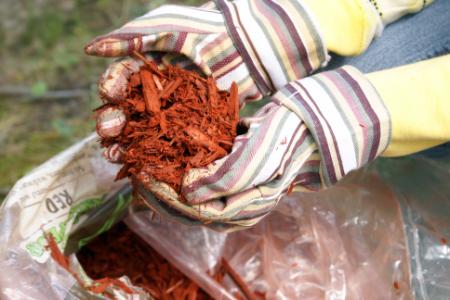Organic vs. Inorganic Mulch: Which Is Best for Your Yard?

Mulching is a vital part of maintaining a healthy and attractive landscape, but choosing the right type of mulch can be overwhelming. Two primary categories dominate the options: organic mulch, like wood chips and pine straw, and inorganic mulch, like gravel and rubber. Each has unique benefits and drawbacks, and understanding these can help you make the best choice for your yard.
Organic Mulch
Organic mulches are made from natural materials such as wood chips, pine straw, bark, or shredded leaves. These options not only improve the appearance of garden beds but also enrich the soil as they decompose.
Pros of Organic Mulch:
- Soil Enrichment: Decomposing organic mulch adds nutrients to the soil, improving its structure and fertility.
- Moisture Retention: Organic mulch helps the soil retain water, reducing the need for frequent watering.
- Eco-Friendly: Made from natural materials, organic mulch is biodegradable and sustainable.
- Temperature Regulation: It insulates soil, protecting plant roots from extreme heat and cold.
Cons of Organic Mulch:
- Decomposition: Because it breaks down over time, organic mulch requires regular replenishment.
- Pest Attraction: Some types, like wood chips, may attract insects such as termites if placed too close to structures.
- Short Lifespan: Organic mulch tends to break down within a season or two, requiring consistent upkeep.
Inorganic Mulch
Inorganic mulches, such as gravel, pebbles, or rubber mulch, do not decompose and are often used for decorative or long-term purposes.
Pros of Inorganic Mulch:
- Durability: Inorganic mulch lasts for years, making it a low-maintenance option.
- Weed Control: It effectively suppresses weed growth by blocking sunlight.
- Aesthetic Appeal: Materials like gravel come in various colors and sizes, offering versatile design options.
- Erosion Prevention: Inorganic mulch, especially gravel, is excellent for controlling erosion in high-traffic or sloped areas.
Cons of Inorganic Mulch:
- No Soil Benefits: Unlike organic options, inorganic mulch does not enrich the soil.
- Heat Retention: Rubber mulch, in particular, can retain heat, which may harm plants during hot weather.
- Higher Upfront Cost: While durable, inorganic mulch can be more expensive initially.
Making the Right Choice
Choosing between organic and inorganic mulch depends on your yard's needs and your maintenance preferences. If you want soil enrichment and sustainability, organic mulch is ideal. For durability and low maintenance, inorganic mulch is the better choice. A mix of both can also be used strategically to achieve a balance between aesthetics and functionality.
Contact us for more advice from a preferred local landscaping company. We're the top choice for mulching in Jacksonville and surrounding areas.
Let’s Bring Your Yard to Life – Reach Out To Our Jacksonville Landscaping Company Today!